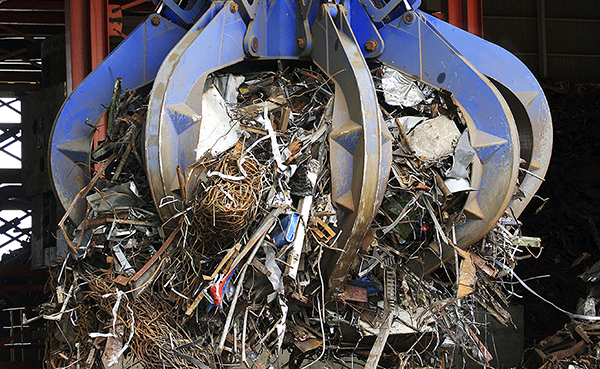The Benelux domestic scrap market has decoupled from export markets. While demand remains strong, with higher-than-expected buying prices from European mills, demand in major export destinations is stagnant. As a result, most Benelux exporters are following a wait-and-see stance before committing to new material.
As a result of sharp domestic market increases, European scrap exporters have been forced to increase their dock prices from €350-360/tonne last week to €355-360/t ($433-439) delivered for HMS 1&2 80:20. However, it seems that this increase is far from being sufficient to secure material.
A Benelux exporter tells Kallanish: “We have changed our procurement strategy from ‘first buy’ to ‘first sell’. The risk is getting bigger each day. We initially have to confirm what levels Turkey is paying and then procure that material.”
Due to different market trends by region, Benelux scrap exporters are refraining from building inventories.
As European mills announce their June-trading prices, sharp increases are being recorded in the EU. German mills have increased their scrap buying prices by $40-50/t, depending on grade. The average price rise is expected to exceed €30/t for new-production material in the EU.
In Turkey last week, demand remained sluggish for the second consecutive week. Turkish mills showed no interest in imported scrap offers and prices remained under pressure. Some European suppliers were heard offering at $495-500/t cfr Turkey for HMS 1&2 80:20 on Friday.
“One of the reasons why Turkish mills were confidently halting purchases for two weeks was the availability of a sufficient number of offers in the market. However, we have to check once again if those offers are still available. Prices have increased very sharply both in the EU and the US and demand shifts towards obsolete grades in these markets,” says a scrap supplier.
Despite weak demand due to ongoing lockdowns, shredded scrap offers in India, another important export destination, have increased due to strong shredded demand in the EU and Pakistan. Containerised shredded scrap offers, which stood below $500/t cfr Nhava Sheva last week, increased above $515/t cfr on Monday.
Market participants in Turkey wonder how Turkish import prices will be affected by the sharp rises seen in the two main scrap suppliers, the EU and the US. While some say there will be no impact as Turkey is importing mostly HMS 1&2 80:20, others think there is no escape for Turkish prices.
The definite rise in shredded scrap premium, however, is agreed to by all. As a result, Turkish mills will most likely have to pay higher prices for cargoes containing shredded.
Burcak Alpman Turkey






